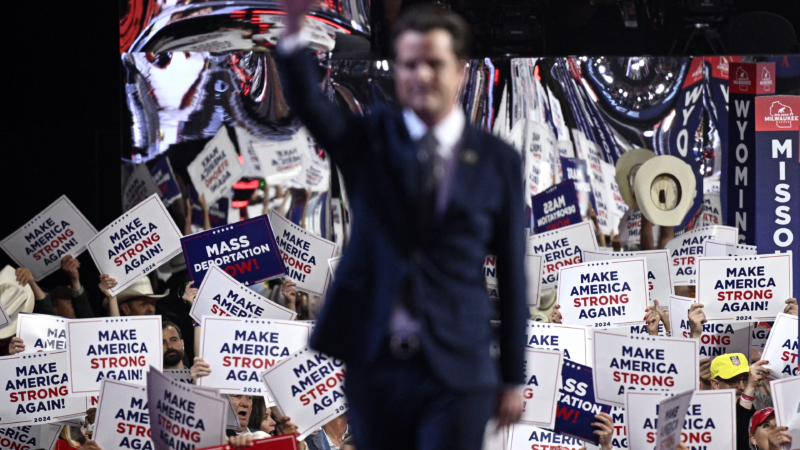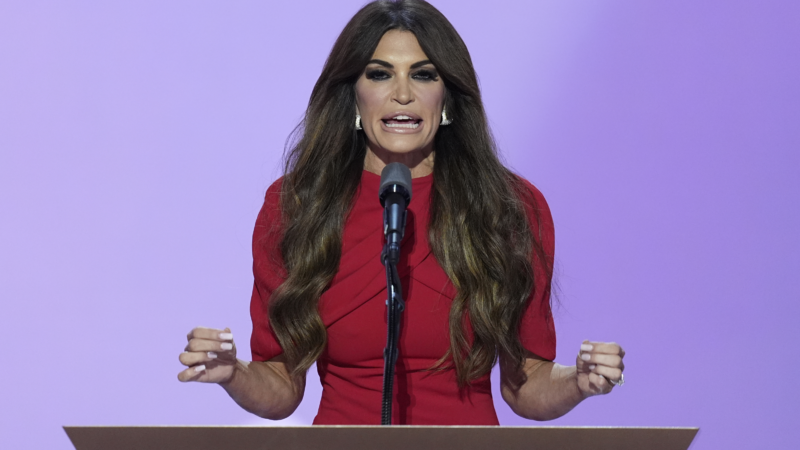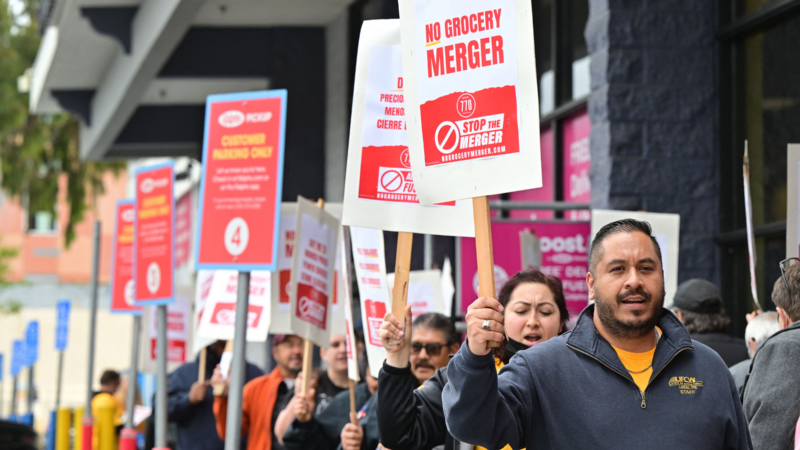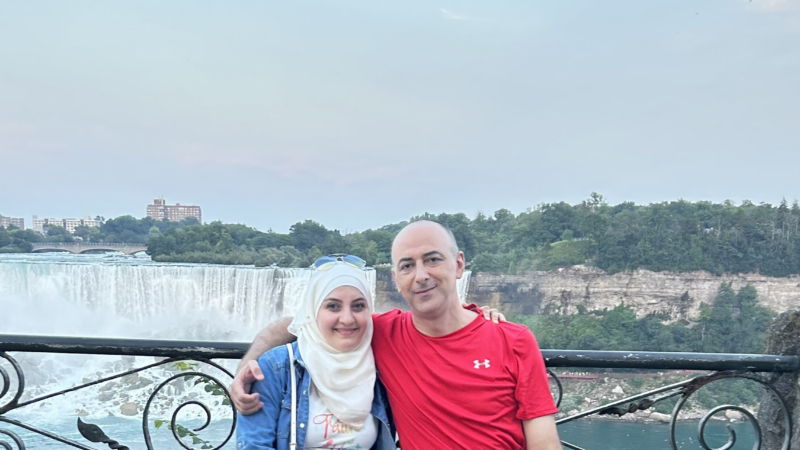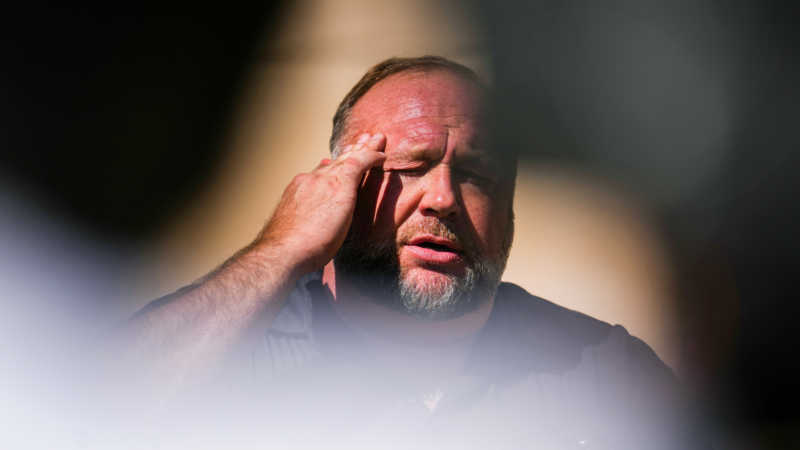Trump’s withdrawn nominees latest in a long line of Cabinet members who never were
When former Rep. Matt Gaetz, R-Fla., decided to withdraw his candidacy to be President-elect Donald Trump’s attorney general, he used a familiar phrase.
“It is clear that my confirmation was unfairly becoming a distraction,” Gaetz wrote on social media. “There is no time to waste on a needlessly protracted Washington scuffle.”
Trump’s choice of Gaetz gave some Republican senators pause. The former congressman was previously the subject of a multiyear federal investigation over alleged sex trafficking and drug use. The Department of Justice never brought charges against Gaetz and ended its probe in 2023.
Still, Gaetz’s decision to bow out of the confirmation process isn’t unique. While the Senate typically confirms nominees brought for a vote, for more than three decades, every former president has had at least one Cabinet nominee withdraw their name from consideration.
In 2001, Linda Chavez remembers reporters and photographers camped out in the driveway of her log cabin in rural Virginia as she dealt with the controversy brought on by her nomination process.
The long-time Republican political aide was tapped by then-incoming President George W. Bush to serve as secretary of labor. However, Chavez’s nomination hit a snag after it came to light that she had previously allowed an undocumented immigrant to temporarily stay in her home.
“The transition would not let me talk to the press…I wasn’t allowed to make my case,” she said. “I really felt that I was becoming, as they say in Washington, a distraction.”

Chavez told NPR that she should have disclosed the information to the Bush transition team earlier and described how the former president’s silence on the issue pushed her to withdraw.
“He didn’t call to say, ‘stick with it, Linda, I’m with you.’ And that, to me, was a signal,” she said. “If he wasn’t calling me to say stick with it, then it meant that they were not fully behind me.”
A look back at past nominees
Former President Bill Clinton’s original nominee for attorney general, Zoë Baird, also faced scrutiny for failing to disclose on her taxes that she employed two undocumented immigrants. Clinton’s second choice to lead the DOJ, federal Judge Kimba Wood, withdrew over a similar situation.
Fast food chain CEO Andrew Puzder also faced a controversy when he was up for labor secretary during Trump’s first term, acknowledging he previously employed a housekeeper who was undocumented, ending her employment when he learned her status. That, as well as personal details from his decades-old divorce and disagreements with lawmakers, doomed his nomination.

Unexpected financial concerns have tainted nominations as well, especially during former President Barack Obama’s administration, who had a total of three Cabinet picks back out, the most of any president in recent history.
Former South Dakota Democratic Sen. Tom Daschle was a high-profile failed nomination for the early Obama administration. Chosen to lead the Department of Health and Human Services, it was discovered that the longtime politician owed more than $140,000 in back taxes and interest.
Obama also encountered multiple roadblocks in selecting a commerce secretary. He first chose then-New Mexico Gov. Bill Richardson, but Richardson eventually withdrew over a grand jury investigation related to his actions with some of his political donors. In a show of bipartisanship, Obama went on to pick Judd Gregg, then a sitting Republican Sen. from New Hampshire, to fill the spot. But Gregg soon changed his mind, citing “irresolvable conflicts” with Obama’s policies.
President Biden nominated Neera Tanden to lead the Office of Management and Budget. Tanden — a fiery progressive and vetted Democratic aide — had long received pushback over a series of social media posts she made criticizing Republicans during Trump’s term, which derailed her confirmation process. Biden did later name Tanden as his domestic policy adviser, a position that did not require Senate confirmation.
Trump’s transition process
While Cabinet nominees, like Linda Chavez, have previously rescinded their nominations as unexpected issues arose, Max Stier, who heads the Partnership for Public Service, says for some of Trump’s picks, that’s not happening.
“It used to be that there would be new things that would come up that people would find disqualifying,” Stier said. “Now, we’re finding that there are old things that would have been disqualifying that are no longer disqualifying.”
Pete Hegseth, Trump’s pick for secretary of defense, has been making his case on Capitol Hill while he’s been the subject of sexual abuse allegations that have concerned some lawmakers. The former FOX News host and veteran has vowed to stay in the running, and Trump has reiterated his support for him.

Hegseth is just one example of what Julian Zelizer, a historian and professor at Princeton University, argues is a challenge of political norms, something that Trump has made a signature of his political career.
“I suspect — and this is just watching — that there is a part of President-elect Trump that doesn’t mind this part of the process,” he said. “It’s almost the kind of chaos and controversy that he tends to thrive with. He dominates the news cycle in a way those other presidents did not.”
“So where other presidents tried to quash this, I get the sense he’s almost reveling in it, and that’s a big difference,” Zelizer added.
In addition to Hegseth, Trump has a handful of other nominees that could face confirmation challenges, including Kash Patel as director of the FBI. Patel has promoted conspiracy theories and previously spoken about drastically reforming the department. Robert F. Kennedy Jr., who is up to head the Department of Health and Human Services, has spread misinformation about the effectiveness of vaccines. Tulsi Gabbard, Trump’s pick for the director of national intelligence, is a former Democratic congresswoman with no record of working in the intelligence space and she has made controversial comments about foreign policy.
In a statement to NPR, Karoline Leavitt, the spokeswoman for Trump’s transition, defended the president-elect’s picks.
“President Trump was re-elected by a resounding mandate from the American people to change the status quo in Washington,” Leavitt said. “That’s why he has chosen brilliant and highly-respected outsiders to serve in his Administration, and he will continue to stand behind them as they fight against all those who seek to derail the MAGA Agenda.”
The president-elect has announced most of his intended Cabinet and at a much faster pace than past administrations, according to Stier. It’s a move that could cause problems for more of Trump’s nominees as they forgo the traditional vetting process.
“I don’t know of anybody that has both gone through an FBI background check … or gotten certification from the Office of Government Ethics,” he said, explaining both are steps that are typically completed before a nominee is announced to try to avoid controversy.
“This is a little bit like the pilot of the airplane who skips the checklists and takes off real fast but doesn’t actually go through the processes that they need to make sure that everything is in order,” he added. “And it’s not in order.”
Kimberly Guilfoyle is the latest Trump family ally chosen for an ambassadorship
Kimberly Guilfoyle, who got engaged to Trump's son in 2020, is the latest appointee he's chosen from his family tree. There's a long and controversial history of presidents picking relatives for jobs.
Albertsons sues Kroger and ends failed grocery megamerger
The lawsuit over a deal to combine the two largest U.S. supermarkets came just a day after it was blocked in both federal and Washington state courts.
One family thought they had left Syria forever. After Assad’s fall, they plan to return
Rehab Alkadi and her husband, Feras, fled Syria's war with their young son in 2013. They and other Syrian refugees in the U.S. are now hopeful for their country's future, even as uncertainty remains.
Through ‘The Loss Mother’s Stone,’ mothers share their grief from losing a child to stillbirth
Through her work, photographer Nancy Borowick says she hopes to draw awareness to women's stories, educate Americans and destigmatize the conversation that occurs between doctors and patients.
GM to retreat from robotaxis and stop funding its Cruise autonomous vehicle unit
The automaker will focus on development of partially automated driver-assist systems for personal vehicles like its Super Cruise, which allows drivers to take their hands off the steering wheel.
Bankruptcy judge rejects The Onion’s bid for Infowars
The bidder that lost last month's auction of conspiracy theorist Alex Jones' assets had complained that the process was rigged and "fatally flawed."
